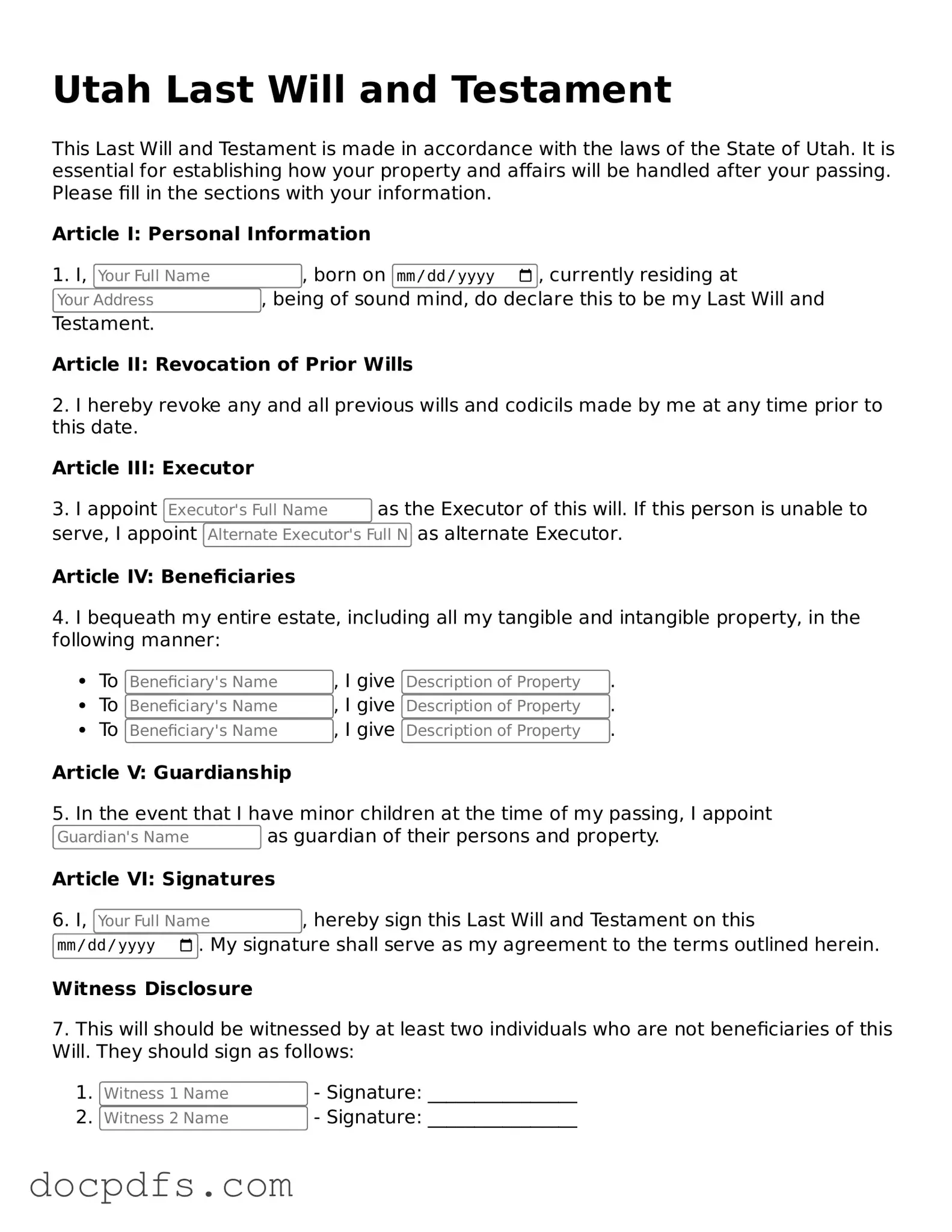What is a Last Will and Testament?
A Last Will and Testament is a legal document that outlines how a person's assets and affairs should be handled after their death. It allows individuals to specify beneficiaries, appoint guardians for minor children, and designate an executor to manage the estate. This document ensures that your wishes are honored and provides clarity for your loved ones during a difficult time.
Who can create a Last Will and Testament in Utah?
In Utah, any individual who is at least 18 years old and of sound mind can create a Last Will and Testament. It is important that the individual understands the nature of their assets and the implications of their decisions when drafting the will.
What must be included in a Last Will and Testament?
A comprehensive Last Will and Testament should include the following elements:
-
Identification of the testator (the person making the will).
-
Appointment of an executor to carry out the terms of the will.
-
Details of beneficiaries and their respective inheritances.
-
Provisions for guardianship of minor children, if applicable.
-
Any specific bequests, such as personal items or property.
How do I sign and witness my Last Will and Testament in Utah?
In Utah, a Last Will and Testament must be signed by the testator in the presence of at least two witnesses. The witnesses must also sign the document, affirming that they witnessed the testator signing the will. It is essential that the witnesses are not beneficiaries of the will to avoid potential conflicts of interest.
Can I change my Last Will and Testament after it has been created?
Yes, you can change your Last Will and Testament at any time while you are of sound mind. This can be done by creating a new will or by adding a codicil, which is an amendment to the original will. It is advisable to consult with a legal professional to ensure that the changes are made correctly and are legally binding.
What happens if I die without a will in Utah?
If you die without a will, your estate will be distributed according to Utah's intestacy laws. This means that the state will determine how your assets are divided, which may not align with your wishes. Additionally, the court may appoint an administrator to manage your estate, which can lead to delays and additional costs for your loved ones.
Is it necessary to hire a lawyer to create a Last Will and Testament?
While it is not legally required to hire a lawyer to create a Last Will and Testament in Utah, it can be beneficial. A legal professional can provide guidance, ensure that the will meets all legal requirements, and help you navigate any complex situations. If your estate is straightforward, you may choose to use online resources or templates, but be sure to review them carefully.
How can I ensure my Last Will and Testament is valid?
To ensure that your Last Will and Testament is valid in Utah, follow these steps:
-
Make sure you are at least 18 years old and of sound mind.
-
Sign the document in the presence of at least two witnesses.
-
Ensure that the witnesses are not beneficiaries of the will.
-
Keep the will in a safe place and inform your executor of its location.

